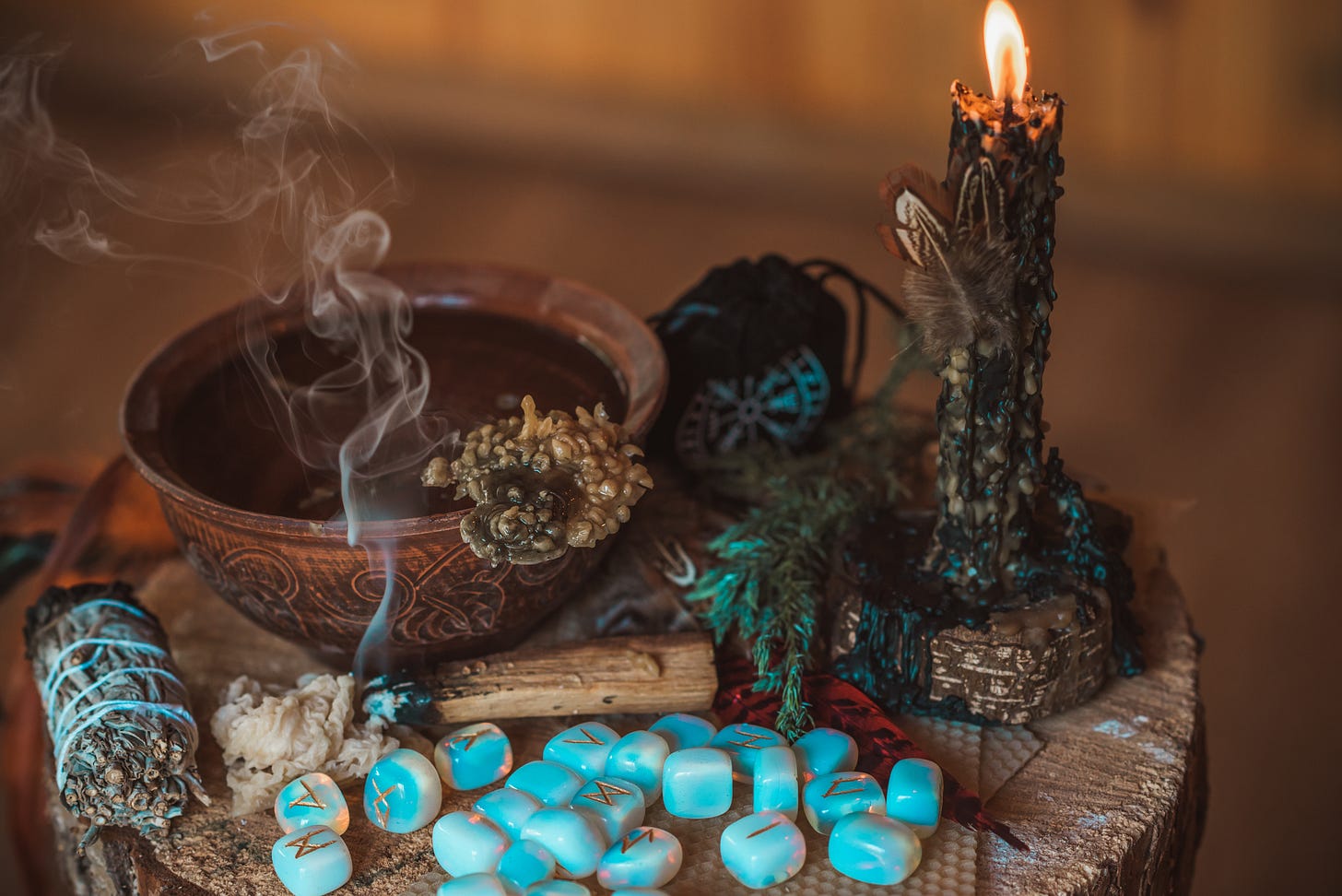We all have a unique inner garden or sanctuary that includes our energy fields, nervous systems, thoughts, and more. Similar to the way a gardener nurtures their garden by planting seeds, removing weeds, and gathering the harvest, we, too must tend to our inner gardens. It involves regularly sowing the seeds of aspirations and wishes, removing the negativity that acts as weeds, and basking in the fruits, vegetables, and flowers of our labor.
A gardener or farmer doesn’t care for their fruits, vegetables, or flowers when they feel like it. They’re constantly planting, fertilizing, watering, harvesting, and utilizing insights from past seasons to prepare them for both present and upcoming seasons.
Consistently dedicating yourself to your inner garden better prepares you to handle any season that comes your way.
If you haven’t read my previous post, Alchemizing Chaos, I’ll review the seven stages of alchemy again below:
What is Alchemy?
Alchemy was a practice that encompassed both chemistry and speculative philosophy, prevalent during the Middle Ages and the Renaissance. Its primary focus was pursuing methods to transform lesser metals into gold and the quest for a universal solvent and a potion capable of bestowing eternal life. Alchemy can also be defined as transmuting pain into power.1
Below are the 7 Stages of Traditional Alchemy:
Calcination: In this phase, the substance undergoes a process of intense heat or fire, leading to its breakdown and the elimination of impurities. It represented the purification and transformative aspect of the material, brought forth through its refinement and removal of imperfections.
Dissolution: The substance is dissolved into its fundamental components.
Separation: The substance is isolated from unwanted substances through distillation and filtration.
Conjunction: In this stage, all elements are combined.
Fermentation: The concoction undergoes a transformation process and may experience growth and the release of gases. This stage represents new life.
Distillation: This mixture undergoes additional heating and condensation to separate volatile components.
Coagulation: The purified and transformed substance is solidified. This stage is the final formation of the final product.
Now that you have a better understanding of alchemy, let’s move on to spiritual alchemy, which has similarities to the traditional alchemy process.
What is Spiritual Alchemy?
Spiritual alchemy involves self-discovery, personal growth, the evolution of consciousness, and more. Here is my perspective on spiritual alchemy:
Purification: Just as alchemists sought to purify base metals, spiritual alchemy involves purifying one's mind, emotions, and spirit. This process involves letting go of negative emotions, limiting beliefs, and attachments that hinder personal growth.
Transmutation: In alchemy, transmutation refers to transforming one substance into another, usually of lesser value, into a higher one. In a spiritual context, this can mean the transformation of negative qualities or experiences into positive ones, leading to personal evolution and spiritual enlightenment.
Integration: Spiritual alchemy emphasizes the integration of opposites, such as the union of the conscious and unconscious mind, masculine and feminine energies, or light and shadow aspects of the self. This integration leads to a more balanced and harmonious existence.
Inner Work: This stage may involve meditation, self-reflection, and contemplation. This leads to the understanding and transmutation of inner conflicts and challenges.
Self-Realization: The ultimate goal of spiritual alchemy is often described as achieving self-realization or spiritual enlightenment. This is the process of recognizing one's true nature beyond the ego, connecting with higher states of consciousness, and attaining a sense of unity with the universe.
Philosophical Insights: The symbolism and language of alchemy are often used to convey deeper philosophical truths about the nature of reality, the interplay of opposing forces, and the mysteries of existence.
Spiritual alchemy is not tied to any specific religious tradition but can be found in various spiritual practices, mystical teachings, and esoteric philosophies throughout history. It's a metaphorical framework for understanding personal growth, transformation, and the journey toward deeper spiritual understanding and fulfillment.
I believe that when you regularly care for and study your spiritual inner garden, you naturally become an alchemist of your own reality.
Journal Prompts | Questions to Ponder:
I invite you to grab your journal and reflect on how these prompts land for you:
What is your definition of spiritual alchemy?
What stage of alchemy do you feel you’re in?
What does your inner garden look like? Have some fun with it; what flowers and herbs are in your inner garden?
Are you taking care of your inner garden?
What would make your inner garden flourish?
I hope you found this supportive. Sending you peace and love wherever you are in the world and wherever you are in life.







This is wonderful, thank you! 💖 I love this break down of the alchemical process, it makes it really easy to understand. For me, the integration step in spiritual alchemy is what seems to come up over and over again.